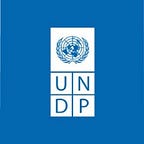Tapping into collective intelligence to forge a sustainable digital future in Azerbaijan
a blog by Leyla Seyidzade and Nargiz Guliyeva
New technologies are rapidly transforming all aspects of our society, sectors and markets. An estimated 70% of new value created in the economy over the next decade will be based on digital platforms. We need to work together and tap into our collective intelligence to re-imagine how we innovate and capture value in the new systems that are emerging.
To help inform Azerbaijan’s Government’s new Innovation Strategy, the Accelerator Lab team partnered with the Ministry of Transport, Communications and High Technologies used the Collective Intelligence Real-Time Survey tool to gather the opinions of industry leaders and youth in the country on the topic of the digital future.
First we looked into cybersecurity.
With cyberattacks growing in frequency, complexity and scale, many governments and companies around the world are undertaking a range of initiatives to train up and involve young people in cybersecurity. This training is urgently needed to address the severe skills gap in cybersecurity capacity, with one report predicting there will be some 3.5 million unfilled cybersecurity positions worldwide by 2021.
The key findings and recommendations suggest there is a strong need for professional cyber training and awareness-raising programmes in Azerbaijan. These programmes need to be designed as part of a public-private partnership to consolidate efforts and increase the market for the private sector.
Another topic we looked into was the brain drain from the IT sector, with IT specialists leaving the country to work abroad.
Here we used collective intelligence to gather insights into how we might reimagine education so as to close the digital skills gap in the future workforce, seeking answers to two main questions:
· What are the primary factors that have exacerbated the brain-drain?
· What immediate actions could be taken to prevent the brain-drain?
The participants in this intelligence-gathering exercise identified the following four key factors that negatively impact the retention of IT specialists in Azerbaijan:
📌 Widespread misconceptions about IT careers as being ‘unsustainable’, ‘low income’ and ‘low prestige’.
📌 Outdated IT curriculum in schools, universities and vocational training centres.
📌 Lack of IT jobs with sufficient benefits and adequate professional management.
📌 Lack of enthusiasm among IT experts to stay and develop the local market when there are more developed ecosystems for IT abroad.
Among the key recommendations proposed to address these challenges are measures to close the gap between educational curricula and the demand for certain jobs on the market.
This entails adapting curricula in high schools to the new realities of the advancing digital economy and providing relevant IT equipment to educational institutions
Another important recommendation was to adjust the taxation system to motivate the industry to grow and provide more jobs and accelerate the digitalization of the public sector, thereby increasing the demand for IT specialists.
In parallel with these measures, public advocacy and awareness-raising initiatives should be launched to encourage young people to pursue education and careers in IT.
We also looked into why women are significantly underrepresented in the ICT industry, asking our participants what can be done to increase women’s participation. The issue was explored from two perspectives:
▶️ The steps that need to be taken to increase women’s participation in the IT industry.
▶️ The introduction of quotas to ensure women’s participation in the IT industry.
The key findings were that any successful approach to increase women’s participation in the IT industry requires a holistic approach with all sectors working together, starting with greater encouragement for young girls to pursue STEM careers.
Such encouragement will be greatly reinforced if successful female role models can motivate more girls to pursue IT careers. At UNDP we are already building mentorship platforms to help connect role models and young female IT professionals.
Overcoming existing stereotypes among employers will also be crucial. This requires informing decision-makers in business industry about the importance of introducing quotas and scholarships for female professionals.
The two key recommendations for increasing the number of women in STEM in Azerbaijan are as follows:
🗝️ To create a multi-sectoral working group on ‘Women in Technology’ to design a holistic approach through the participation of representatives from the government, the private sector and civil society.
🗝️ To ensure multi-sectoral participation in the discussion about gender quotas in IT faculties, funding allocations, incubation and acceleration programs.
The final topic we explored using collective intelligence was the gaming industry and its current state of underdevelopment in Azerbaijan.
From our survey we found that the start-up community recommend increasing access to finance and in-kind contributions (office space, computers, mentorship services) to boost the game industry.
Additional recommendations included efforts to establish connections between private sector investors and the game industry, for example by strengthening networks via specialized online groups, incubation and acceleration centres.
We will continue tapping into the collective intelligence of innovators and experts and citizens throughout the year, hoping that together we can lay the foundations for an inclusive and secure digital economy for all with policies and investments enabling people to use technology to build better lives and a more trusting world.
